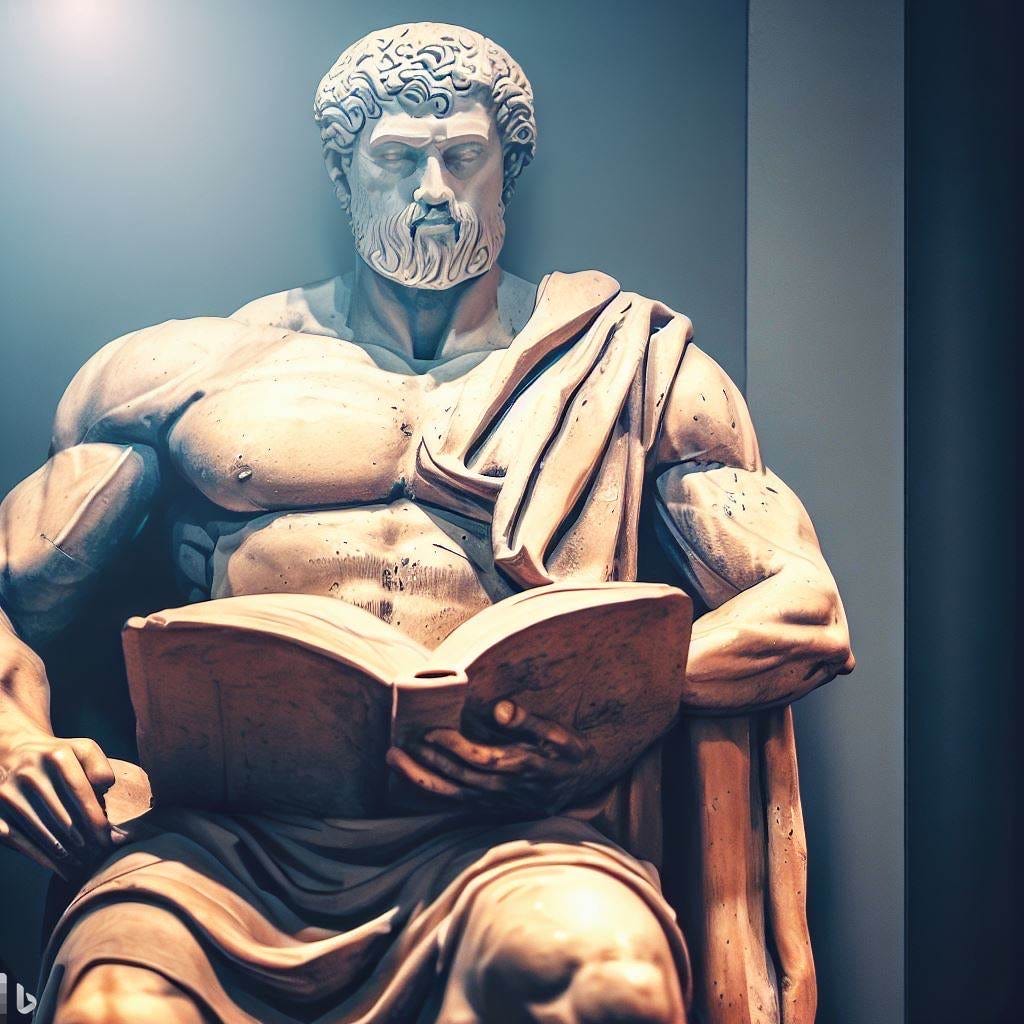Benefits of "Deep Reading"
Wiring your brain for new insights
“We live in a world where there is more and more information, and less and less meaning.”
- Jean Baudrillard
Research enough famous investors and you’ll find a common theme: a love of reading.
William Greene’s book Richer, Wiser, Happier provides many excellent examples, with Warren Buffet and Charlie Munger the most recognizable.
And as Warren Buffet eloquently stated: “I just sit in my office and read all day.” No wonder he manages to read at least 500 pages every day!
What an awesome job.
What these investors realize, and science backs up, is that reading strengthens integrative thinking, builds patience and ability to focus, and expands their minds in new directions. Importantly, what you read is only part of the equation. The act of reading itself provides many of these benefits.
And it’s not the kind of reading that happens from skimming your phone. In a warning on the dangers of our digital and constant-distraction world, Maryanne Wolf stresses the importance of “deep reading”:
“To skim to inform” is the new norm for reading. What goes missing are deep reading processes which require a quality of attention increasingly at risk in a culture and on a medium in which constant distraction bifurcates our attention. These processes include connecting background knowledge to new information, making analogies, drawing inferences, examining truth value, passing over into the perspectives of others (expanding empathy and knowledge), and integrating everything into critical analysis. Deep reading is our species’ bridge to insight and novel thought.
A long session reading on my phone rarely feels as satisfying or lasting as time focused on one of my books. It’s one of those ideas that, while somewhat intuitive, still resonates and motivates me to aggressively swap digital time for book time.
And as a dad, it’s a reminder of what’s at stake with my kids. Maryanne continues:
Today’s crises exacerbate threats to full literacy. This is because no human was born to read. Literacy requires a new, plastic brain circuit. Plasticity allows the circuit to adapt to any writing system and any medium. The catch is that circuits reflect the medium’s characteristics, whatever they are.
The medium of print advantages slower, more attention- and time-requiring processes. The digital medium advantages fast processes and multitasking, both well-suited for skimming information’s daily bombardments.
“No human was born to read..” That’s an eye-opener! I hope to demonstrate for my kids an enthusiasm for “slower, more attention- and time-requiring processes”, in a world increasingly dominated by “information’s daily bombardments.” It requires discipline to resist the default.
And note that Maryanne Wolf never limits these benefits to a certain genre of literature. Those famous investors don’t stick to finance - they pull from history, economics, philosophy, and more.
So go find a good book and put the phone down for a bit.
By the way
Cal Newport, author of Digital Minimalism and Deep Work, has excellent resources for approaching life more thoughtfully. In particular, he challenges many of the assumptions we have about how technology’s role in our work and personal lives.
Check out this episode of The Tim Ferris Show if you want to learn more.
A few highlights from their discussion:
“Slow productivity” - Most of us currently operate in “fast productivity” contexts, where we measure outputs in hours, days, and maybe weeks. The idea of “slow productivity” is orienting work around projects that take months and years to accomplish - those tend to be the more fulfilling kind.
A review of Cal’s 30-day digital minimalism declutter to reset the role of various technologies in your day-to-day.
Shutdown rituals for calming your mind at the end of a workday.
Thanks for reading.




